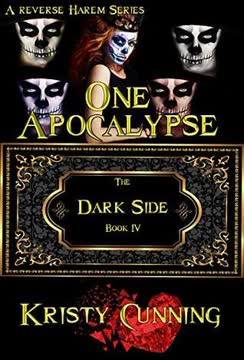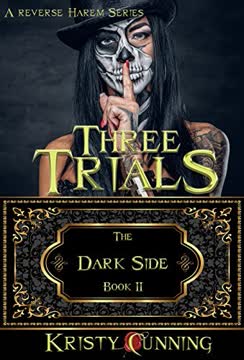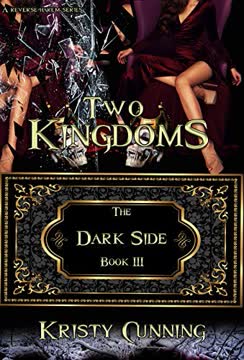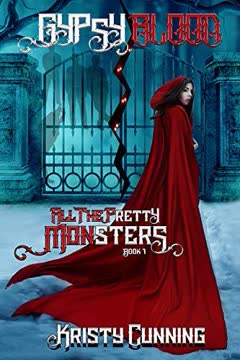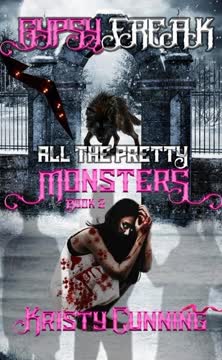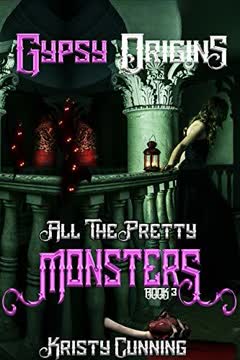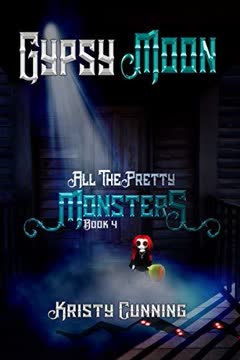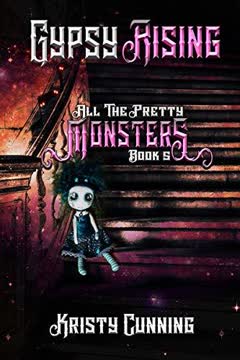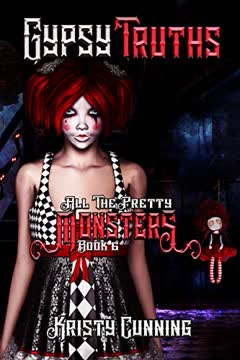Plot Summary
Apocalypse in Training
The story opens with Paca, the embodiment of the Apocalypse, subjecting herself to relentless beatings in Hell to prepare for an impending battle against a monstrous force, Jahl. Her four lovers—Jude, Kai, Gage, and Ezekiel—are the Four Horsemen, each with their own powers and emotional baggage. Paca's resilience and humor mask her fear and determination, as she insists on facing pain to become unbreakable. The group's dynamic is a blend of dark banter, sexual tension, and deep loyalty, setting the tone for a journey where love, power, and survival are inextricably linked.
Bonds Forged in Hell
As Paca's training continues, the Horsemen struggle with their feelings for her and each other. Their relationships are tested by jealousy, competition, and the need for unity. The group's bond is both their greatest strength and weakness, as their love for Paca makes them vulnerable but also fuels their power. The narrative explores the psychological complexity of their polyamorous connection, highlighting how love, rivalry, and shared trauma shape their identities and destinies.
Sibling Rivalries Unleashed
To further strengthen herself, Paca arranges a public showdown against her hell-spawn siblings, each representing a deadly sin. The event is both spectacle and strategy, as Paca seeks to humble her siblings and prove her worth. The battles are brutal and theatrical, with each sibling wielding unique powers. Paca's victories come at a cost, leaving her battered but more attuned to her own abilities and the intricate balance of power in Hell.
The Black Heart's Trials
The Horsemen enter Hell's Black Heart, a shifting landscape of their worst fears and memories. Here, they confront grotesque monsters, psychological torment, and the limits of their own strength. The trials force them to rely on each other and Paca, deepening their bond and revealing the true nature of their connection. The Black Heart serves as both crucible and mirror, exposing their vulnerabilities and forging them into a more cohesive unit.
Love, Lust, and Power
The group's sexual and emotional intimacy becomes a source of power, with each confession of love or act of surrender unlocking new abilities. Paca's relationships with the Horsemen are both passionate and strategic, as their unity is essential to facing Jahl. The narrative delves into the interplay between desire, vulnerability, and empowerment, showing how love can be both a weapon and a shield in the battle for survival.
The Showdown Challenge
The much-anticipated showdown with her siblings draws a crowd in Hell, with the stakes higher than ever. Paca faces each sibling in turn, enduring pain and humiliation but refusing to back down. The Horsemen, forced to watch helplessly, grapple with their own feelings of powerlessness and fear. The spectacle is both a test of strength and a crucible for the group's unity, as Paca's resilience inspires and terrifies those who love her.
Sins and Suffering
As the battles intensify, Paca is pushed to her limits, suffering wounds both physical and emotional. The Horsemen, unable to intervene, are tormented by their inability to protect her. The narrative explores the cost of power and the pain of love, as each character confronts their own demons. The suffering is not just a test of endurance but a catalyst for transformation, as Paca and the Horsemen are forced to confront what they are willing to sacrifice for each other.
Leveling Up Wrath
Through relentless suffering and the support of her lovers, Paca achieves a new level of power, her flames turning purple and her abilities expanding. This transformation is both a blessing and a curse, as it brings her closer to the strength needed to face Jahl but also threatens to consume her. The group's unity is tested as they navigate the dangers of newfound power and the ever-present threat of loss.
The Unity Strike
In a desperate trial orchestrated by Paca's siblings, the Horsemen are forced to fight together against impossible odds. Through pain, love, and sheer will, they unlock the Unity Strike—a devastating collective attack that can only be achieved through perfect harmony. This breakthrough is the culmination of their journey, proving that their bond is their greatest weapon. The Unity Strike becomes the key to facing Jahl, but its use comes with the risk of losing everything.
The Devil's Bargain
As the final battle approaches, Paca and the Horsemen make deals with angels, devils, and each other. Secrets are revealed, including the existence of a secondary trigger—a backup plan hidden within the Horsemen that could destroy Jahl but at great personal cost. The narrative explores the moral ambiguity of their choices, the weight of destiny, and the price of survival. Trust and betrayal become central themes as the group prepares for the ultimate confrontation.
The Battle for Balance
The climactic battle against Jahl unfolds in the Pure Branch, a hellish arena where the rules of reality are warped. Paca and the Horsemen unleash their full power, combining their abilities in a desperate struggle against an enemy that seems invincible. The fight is brutal, chaotic, and emotionally charged, with each character pushed to their breaking point. The narrative captures the intensity of the battle, the stakes of failure, and the hope that love and unity can overcome even the darkest forces.
Apocalypse Unleashed
As the battle reaches its peak, Paca realizes that victory requires the ultimate sacrifice. She unleashes her full power, triggering a cataclysmic attack that destroys Jahl but also consumes her. The Horsemen, devastated by her loss, are left to grapple with grief, guilt, and the uncertain future. Paca's sacrifice is both a triumph and a tragedy, embodying the paradox of the Apocalypse—destruction as a path to renewal.
Sacrifice and Survival
In the wake of the battle, the Horsemen mourn Paca, struggling to find meaning in their survival. The world is saved, but the price is steep. The narrative explores themes of loss, memory, and the enduring power of love. Hints are dropped that Paca's story may not be over, as the bonds forged in Hell transcend even death. The group's journey is both an ending and a beginning, as they face the challenge of living without the woman who defined their existence.
The Aftermath of Victory
Time passes, and the Horsemen adapt to a world without Paca. Their grief is palpable, but so is their hope. The narrative shifts to a more introspective tone, exploring how trauma, love, and memory shape identity. The Horsemen's unity endures, sustained by the promise that Paca will return. The story becomes a meditation on healing, resilience, and the possibility of redemption.
Ghost Girl Reborn
In a twist of fate, Paca is reborn as a "ghost girl," regaining physical form and reuniting with the Horsemen. Her return is both joyous and awkward, as she navigates a new body, lost memories, and the lingering scars of her sacrifice. The group's dynamic is renewed, blending humor, passion, and the hard-won wisdom of their shared ordeal. Paca's rebirth is a testament to the enduring power of love and the possibility of second chances.
Love After the End
As Paca and the Horsemen rediscover each other, they confront the challenges of starting over. Their love is tested by new insecurities, old wounds, and the ever-present threat of loss. The narrative balances steamy romance with emotional depth, showing how love can be both fragile and unbreakable. Together, they forge a new path, embracing the uncertainty of the future and the promise of eternity.
Eternity's New Beginning
The story closes with the group embracing their new life, stronger and more united than ever. Paca's journey from apocalypse to rebirth mirrors the cycle of destruction and renewal that defines their world. The Horsemen, once harbingers of doom, become guardians of hope. Their love, tested by hell and time, endures as the foundation of a new beginning. The Apocalypse, once feared, becomes a symbol of transformation, proving that even in the darkest times, love can rewrite destiny.
Characters
Paca (The Apocalypse)
Paca is the embodiment of the Apocalypse, a being forged from wrath, love, and the desire to protect those she loves. Her journey is one of self-discovery, pain, and transformation. She is fiercely independent, often masking vulnerability with humor and bravado. Her relationships with the Horsemen are complex—she is both their leader and their lover, drawing strength from their unity. Paca's willingness to endure suffering and make the ultimate sacrifice defines her arc, as she learns that true power comes from love, vulnerability, and the courage to change. Her rebirth as "ghost girl" underscores her resilience and the cyclical nature of her existence.
Jude (Death)
Jude is the Horseman of Death, embodying both the inevitability of loss and the hope of renewal. He is the most guarded of the group, struggling to express love and vulnerability. His journey is one of gradual surrender, as he learns to trust Paca and his brothers. Jude's internal conflict—between duty and desire, anger and tenderness—drives much of the group's dynamic. His eventual confession of love is hard-won, symbolizing the power of emotional risk and the healing potential of connection.
Kai (Conquest)
Kai is the Horseman of Conquest, often serving as the group's emotional center and comic relief. He masks deep insecurities with bravado and wit, using humor to deflect pain. Kai's relationship with Paca is marked by playful banter and genuine affection, but also by a fear of loss and inadequacy. His arc is one of self-acceptance, as he learns to balance strength with vulnerability and to trust in the power of unity.
Gage (War)
Gage is the Horseman of War, embodying both the destructive and redemptive aspects of conflict. He is deeply in love with Paca, often struggling with jealousy and the need to prove himself. Gage's journey is one of learning to channel his passion into constructive action, using love as a weapon against despair. His willingness to sacrifice and his capacity for tenderness make him a vital part of the group's strength.
Ezekiel (Famine)
Ezekiel is the Horseman of Famine, often serving as the group's voice of reason and reflection. He is deeply attuned to the emotional currents of the group, offering insight and support. Ezekiel's arc is one of embracing his own desires and learning to assert himself within the group dynamic. His love for Paca is steady and unwavering, providing a foundation for the group's unity.
Lamar
Lamar is Paca's best friend and confidant, serving as a bridge between the group and the larger world of Hell. He is resourceful, witty, and fiercely protective of Paca, often using deception and strategy to aid her. Lamar's loyalty is tested by the shifting allegiances and dangers of Hell, but his commitment to Paca never wavers.
Rafael
Rafael is an archangel who trains Paca and serves as both adversary and ally. He is tormented by guilt and the burden of responsibility, struggling to balance duty with compassion. Rafael's relationship with Paca is marked by mutual respect and rivalry, as they push each other to new heights of strength and understanding.
Hera, Lilith, Cain, Manella, Gemini Twins (Paca's Siblings)
Paca's siblings each embody a deadly sin—Lust (Hera), Envy (Lilith), Gluttony (Cain), Sloth (Manella), Pride and Greed (Gemini Twins). They serve as both obstacles and mirrors for Paca, challenging her strength and forcing her to confront her own flaws. Their relationships are marked by rivalry, betrayal, and occasional moments of solidarity, reflecting the complex dynamics of family and power in Hell.
Jahl
Jahl is the primary antagonist, a being of pure corruption and destruction. It is both a literal and symbolic embodiment of the world's darkest impulses, adapting to every attack and feeding on imbalance. Jahl's presence forces Paca and the Horsemen to confront their own limitations and the true cost of victory.
Plot Devices
Polyamorous Reverse Harem
The story's central device is the polyamorous relationship between Paca and the Four Horsemen. Their unity is both a source of supernatural power and a crucible for emotional growth. The narrative uses their intimacy—emotional and physical—as a means of unlocking new abilities, emphasizing the transformative power of love and the necessity of trust and surrender.
Leveling Up Through Suffering
Paca's journey is marked by a series of escalating trials, each requiring her to endure greater suffering to unlock new powers. This device mirrors the structure of a video game, with each "level up" bringing new challenges and abilities. The narrative uses pain and endurance as metaphors for growth, resilience, and the willingness to change.
The Unity Strike
The Unity Strike is a collective attack that can only be achieved through perfect harmony among the Horsemen. It serves as both a literal and symbolic representation of the power of unity, requiring the group to overcome jealousy, fear, and division. The device underscores the theme that true strength comes from connection and cooperation.
The Devil's Bargain and Secret Triggers
The story is driven by a series of bargains, secrets, and backup plans—most notably the existence of a secondary trigger hidden within the Horsemen. These devices introduce moral complexity, forcing the characters to weigh the cost of survival against the price of love and loyalty. The narrative structure is nonlinear, with foreshadowing, riddles, and hidden messages guiding the characters toward their ultimate fate.
Cyclical Rebirth and Memory
The story employs a cyclical structure, with Paca's death and rebirth mirroring the larger themes of apocalypse and renewal. Memory—what is lost, what endures—becomes a central motif, as the characters grapple with the pain of forgetting and the hope of rediscovery. The device reinforces the idea that love transcends time, death, and even the end of the world.
Analysis
One Apocalypse is a darkly witty, emotionally charged reimagining of the apocalypse myth, blending reverse harem romance, supernatural action, and psychological depth. At its core, the novel is about the transformative power of love—how it can be both a source of strength and vulnerability, a reason to fight and a reason to sacrifice. The story subverts traditional hero narratives by centering antiheroes who are deeply flawed, fiercely loyal, and unapologetically passionate. Through Paca's journey—from suffering and sacrifice to rebirth and renewal—the book explores themes of identity, memory, and the cyclical nature of destruction and creation. The narrative's use of polyamory, nonlinear structure, and metafictional devices (like riddles and video game logic) creates a fresh, engaging take on the end-of-the-world trope. Ultimately, One Apocalypse suggests that even in the darkest times, love, unity, and the willingness to change can rewrite destiny and offer hope for a new beginning.
Last updated:
Review Summary
One Apocalypse concludes The Dark Side series with mixed reactions. Many readers praise the humor, action, and character development, particularly enjoying Paca's growth. The reverse harem romance and unique plot are highlights. However, some find the ending unsatisfying, feeling it undoes character progress. Criticisms include repetitive language and occasional immaturity from the protagonist. Despite divided opinions on the finale, most agree the series is entertaining and worth reading for fans of paranormal reverse harem romance.
The Dark Side Series
Similar Books
Download PDF
Download EPUB
.epub digital book format is ideal for reading ebooks on phones, tablets, and e-readers.
